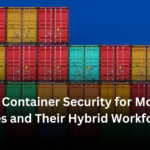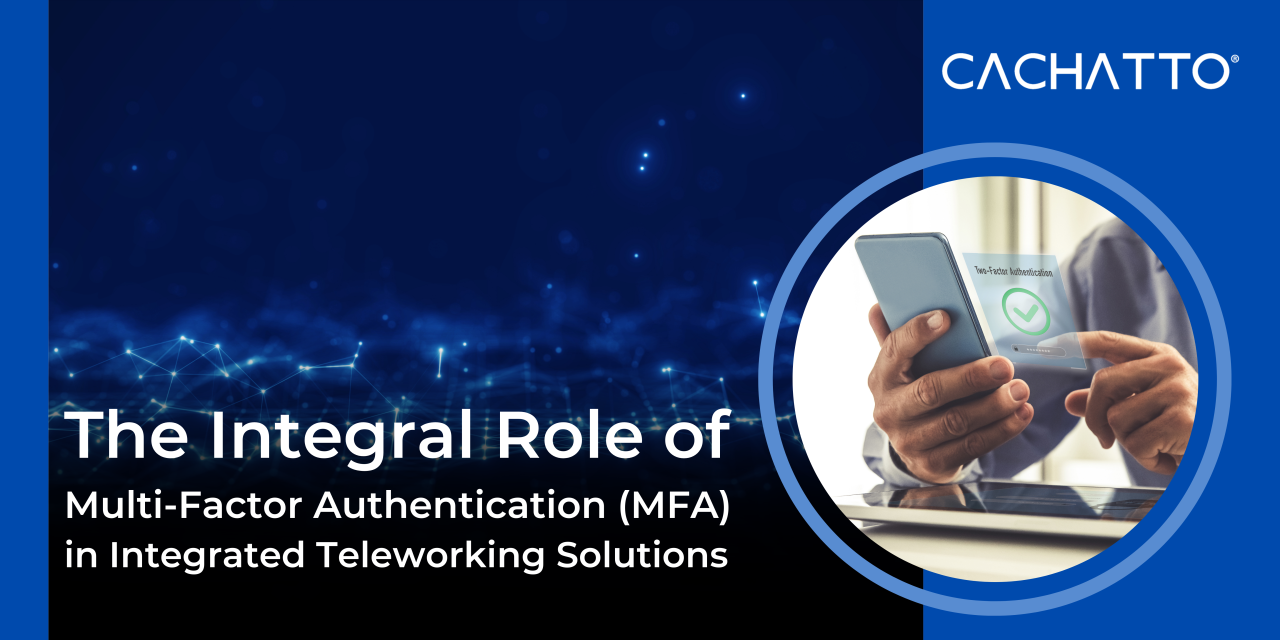In the contemporary landscape of work, teleworking solutions have become indispensable, facilitating seamless collaboration and productivity among remote teams.
However, the increasing reliance on remote work also brings forth significant cybersecurity challenges. To address these challenges effectively, organizations must integrate robust security measures into their teleworking solutions. One such measure is multi-factor authentication (MFA), which plays a pivotal role in enhancing the security posture of remote workers.
Securing Remote Work Environments:
The decentralized nature of remote work presents unique cybersecurity vulnerabilities, including the risk of unauthorized access, data breaches, and malicious attacks. Traditional security measures, such as firewalls and antivirus software, are no longer adequate in mitigating these risks.
As remote workers access corporate networks and sensitive data from various locations and devices, organizations must implement comprehensive security solutions tailored to the teleworking environment.
Integration of MFA into teleworking solutions emerges as a crucial strategy to fortify the security of remote work environments.
Understanding Integrated Teleworking Solutions:
Integrated teleworking solutions encompass a suite of technologies and tools designed to facilitate remote work while maintaining security, connectivity, and productivity. These solutions often include collaboration platforms, cloud-based applications, and remote access solutions. By integrating MFA into these teleworking solutions, organizations can add an additional layer of authentication to verify the identities of remote users and protect sensitive data and resources.
Users must submit several kinds of verification in order to access systems or apps, which increases security through multi-factor authentication. MFA is no longer a secret and by incorporating multiple layers of authentication, it significantly reduces the likelihood of unauthorized access, even if one factor is compromised.
Benefits of Integration:
Integrating MFA into teleworking solutions offers several benefits in terms of security, compliance, and user experience. Firstly, MFA strengthens security by mitigating the risks associated with password-based authentication, such as phishing attacks, credential theft, and brute force attacks. Even if an attacker obtains a user’s password, they would still need to provide additional verification, thus thwarting unauthorized access attempts.
Secondly, integrated MFA solutions help organizations comply with regulatory requirements and industry standards, such as the General Data Protection Regulation (GDPR), etc. These regulations often mandate the implementation of strong authentication measures to safeguard sensitive information and ensure data privacy and security.
Furthermore, integrating MFA into teleworking solutions can improve user experience by offering seamless and convenient authentication methods. Modern MFA solutions leverage biometric authentication, push notifications, and adaptive authentication to provide frictionless user experiences while maintaining robust security. This ensures that remote workers can access corporate resources efficiently without compromising security or productivity.
Future Implications:
As the prevalence of remote work continues to grow, the integration of MFA into teleworking solutions is becoming increasingly critical for ensuring the security and resilience of remote work environments. Advancements in MFA technologies, such as machine learning and behavioral analytics, are further enhancing security while improving user experience. Moreover, regulatory developments and industry trends will influence the adoption and evolution of integrated MFA solutions in remote work environments.
The integration of multi-factor authentication into teleworking solutions plays a vital role in securing remote work environments and mitigating cybersecurity risks. As organizations continue to embrace remote or hybrid work, integrating MFA into teleworking solutions will be essential for safeguarding sensitive data and maintaining the integrity of remote work environments in an increasingly interconnected world.





